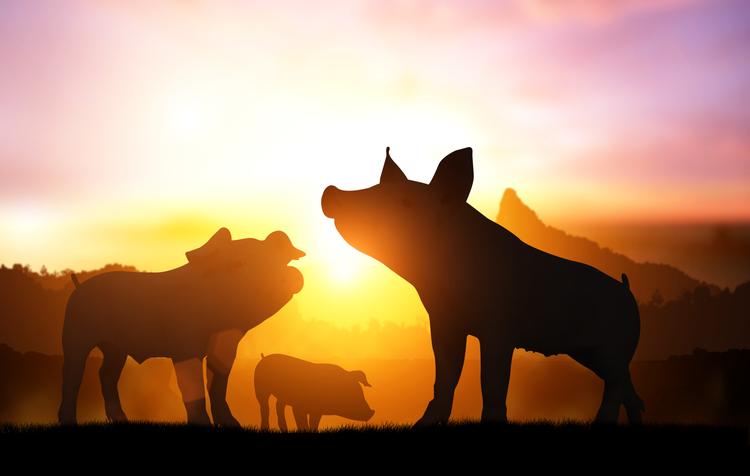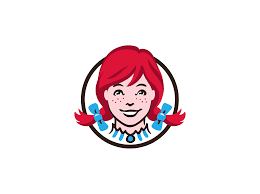How Do We Feel About Antibiotics? For People And Animals…It’s Complicated

There’s a lot of talk today about antibiotic use in human and animal medicine – and for good reason. Antibiotics are one of the most effective classes of drugs for treating infections in people and animals, and countless lives have been saved by antibiotic progress. However, over the last several years the public health community has raised an alarm about antibiotic overuse, a problem that can contribute to antibiotic resistance or the emergence of “superbugs” that become immune to traditional antibiotic therapies.
In human health, physicians are encouraged to prescribe antibiotics only when necessary to treat disease and not “just in case.” As a patient, if you’re prescribed antibiotics, you’re strongly encouraged to take your entire course of medication, even if your symptoms go away, to prevent antibiotic resistance.
The same science comes into play for animals that are raised for livestock or food products (chicken, beef, pork and the like), and serious questions are at stake.
Should livestock animals be given the same drugs that are given to humans to treat disease? Could different drugs be developed for animals so that human antibiotics remain as effective as possible? Are too many antibiotics used to raise animals today, and if so, what’s the alternative? And finally, what does it mean if we limit or even eliminate antibiotics from the livestock community? Is that good for people, animals and the planet?
The answers are as complicated as the questions, and we don’t pretend to have all of them. But as a large purchaser of beef, pork and chicken, we believe it’s our obligation to have a point of view and act on it.
We have been reviewing our policies around animal welfare and antibiotic use in our supply chain, a process we go through regularly with our internal experts and outside advisors. Last week, we made some changes designed to push our journey forward and published a new position on our website (click here to check it out). As we shared with you in Error! Hyperlink reference not valid., we have an extensive, well-established animal welfare auditing program, and responsible antibiotic use has long been a part of that program. So we’d like you to know how we’re thinking about this issue:
- We believe that protecting human health is the absolute priority – and everything we do must start with that focus. It’s why “Quality is our Recipe” hangs on the wall of every Wendy’s restaurant around the world.
- We have an obligation to the animals that provide the meat, dairy and egg products that feed us. Our responsibility is to ensure that those animals are raised and cared for humanely throughout their life. That means keeping them healthy, and treating them when they’re sick.
- We believe that our food supply is the safest in the world, and we are proud to be a part of a community that is truly feeding the planet. We are grateful to farmers and ranchers for all that they do every day.
- The U.S. regulatory structure related to antibiotic use is very specific. If an animal is treated with antibiotics, it cannot enter the food supply unless the antibiotics have completely worked through its system. For instance, if a dairy cow gets an infection and needs antibiotics, she still gets milked every day (she’d be in pain otherwise), but all of her milk is thrown away until all traces of antibiotic residue disappear. Every single tanker truck of milk that arrives at a milk processing plant is checked for antibiotic residue, and recent FDA surveys confirm that compliance with this regulation is very high.
- We believe that eliminating antibiotics from all food production today, or trying to do so in the near future, is not only impractical but also inhumane. Withholding treatment from a sick animal is cruel and we won’t advocate for it just because it makes a good headline.
- With that said, we do believe that there are opportunities throughout the livestock industry today to reduce the use of antibiotics, and in some cases, eliminate it altogether. We also believe that antibiotics should only be used when an animal has or is at high-risk of developing a medical problem.
- We also understand that despite the safety of our food supply, some customers prefer to eat food from animals that have never received antibiotics or have never received antibiotics that are also used in human medicine. We are working to provide options to make this a reality for Wendy’s customers.
- Focusing on antibiotic use alone is not enough. We believe that the best farmers and ranchers use the least amount of antibiotics because they raise their animals in a way that promotes health and minimizes disease. Antibiotic reduction starts with good animal care.
- We have a long-term goal of phasing out the use of antibiotics in livestock when those antibiotics are medically important to humans.
- We believe in teamwork, cooperation and doing the right thing.
We have established some goals to continue to make progress in this area. Here is what we now require of all of our chicken, beef and pork suppliers – a policy we refer to as “Replace – Reduce – Refine”:
Replace:
Our meat suppliers are prohibited from using antibiotics that are important to human health to make their animals grow. This is becoming a federal standard later this year, and we applaud the FDA’s approach in this area. While this standard is not a federal mandate, we have made it a requirement of our suppliers, and we have added compliance with this standard to our animal welfare auditing program.
Reduce:
Wherever possible, without creating negative animal welfare issues, we expect our suppliers to phase out the use of antibiotics that are important to human medicine.
- For chicken, today, about 50% of our supply is already raised without medically important antibiotics, and we aim to have 100% of our chicken supply raised this way by next year (2017).
- For pork and beef, eliminating medically important antibiotics is harder to do without compromising animal welfare. Because these animals live longer than chickens, they’re more likely to need antibiotics at some point in their lives. We are actively working with our suppliers, the academic community and industry experts to find antibiotic alternatives. These alternatives may include things like probiotics, vaccines or feed supplements that either reduces the risk that the animal will develop a health condition that requires antibiotic treatment, or will treat the health condition without an antibiotic.
- Next year, we will commit to specific goals for reducing or eliminating medically important antibiotics in our pork and beef supply.
- Some people may not like this approach. They may prefer that we just pick a date in the future and announce a goal to eliminate all medically important antibiotics by that time, even if we don’t know exactly how we’re going to accomplish that. That’s the approach that President John F. Kennedy took when he made his famous Moon Shot speech. He declared that the United States would put a man on the moon and return him safely to earth within the decade, even though many scientists of the time had absolutely no idea how. And you know what? Goals have a way of driving progress and Neil Armstrong is forever in the history books as a result! Surely this issue can’t be any harder than manned space travel, right? Well, we considered that approach, but we think we need a little more time. By next year, we and our suppliers will have completed a variety of research projects that are underway now, and we’ll feel more confident about what we believe can be accomplished in the future, and by when.
So stay tuned for our specific goals for beef and pork next year.
Refine
Finally, we think the entire livestock community – farmers, processors, veterinarians, drug companies and folks like us at Wendy’s – needs to partner together to implement improved production practices that keep animals healthier and decrease the need for treatments. One of the ways we believe we can contribute to that effort is by endorsing practices that have been developed by veterinarians and requiring them as part of our standards.
The beef, pork and chicken farming and ranching communities each have, or are in the process of refining, their own best practices for animal care and antibiotic use. We already require this certification for our pork suppliers, and we will be adding certification as a requirement for our chicken and beef suppliers.
Resources:
http://www.pork.org/pqa-plus-certification/program-materials/
http://www.bqa.org/resources/manuals
https://www.ams.usda.gov/services/auditing/process-verified-programs
We believe that this approach – (Replace – Reduce – Refine) – is a commonsense way to drive positive change without jeopardizing the welfare of animals or the livelihoods of farmers, ranchers and food producers. There are also many in the industry that we may not have a direct relationship with, such as drug companies, breeders and animal feed producers. We welcome the opportunity for partnership across the livestock supply chain, because we know that we can be even better together.
Thanks,
Liliana

